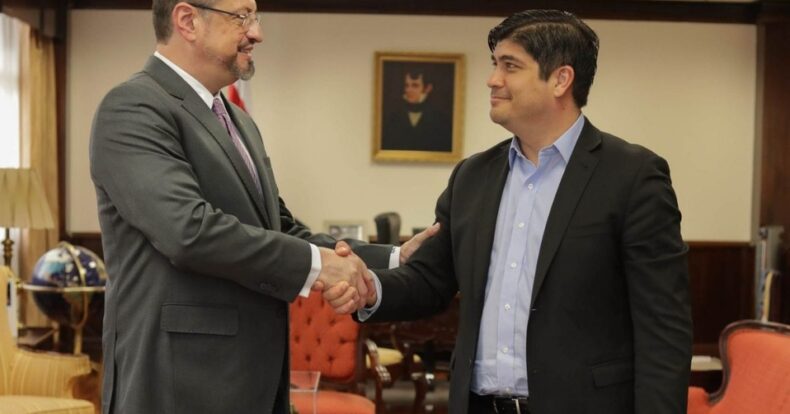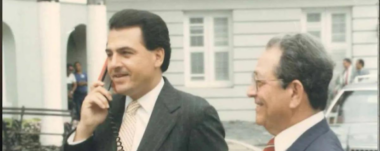Presidential Inauguration 2022 in Costa Rica: A Simple Ceremony Without the Presence of the Costa Rican People

On May 8 of this year, along with Rodrigo Chaves’s first speech as president, the presidential inauguration was carried out.
The presidential inauguration, called the transfer of powers in Costa Rica, is much more than a democratic tradition. It is based on respect so that the democratic process flows normally in accordance with constitutional norms.
Rodrigo Chaves, who won the second round of elections on April 3, took office on May 8 for a 4-year term.
In Costa Rica, the transfer of powers is a tradition that is linked to various institutions, state enterprises, and state municipalities. The legal system, in order to provide facilities to the Commission for the Transfer of Powers, establishes rules of cooperation within the framework of its competencies. In turn, the President of the Republic and the Minister of Foreign Affairs, signed the declaration of public interest of all acts and ceremonies related to the transfer of presidential power, where, in one of its announcements, highlights the duty to declare of public interest all acts and ceremonies that are related to the presidential inauguration, as well as all activities that, in the exercise of its functions, the commission performs.
The document also urges private companies to provide facilities and cooperation to the Commission for all events and preparatory acts, to the extent of their possibilities, in order to guarantee their realization.
An Alternative Location for the Presidential Inauguration
In the history of the country, only four presidents have opted for a venue other than the National Stadium for the transfer of power. The first of them was Mario Echandi, in 1958, who held the ceremony at Morazán Park. Then, 44 years later, Abel Pacheco chose Mélico Salazar National Theater. In 2010, President Laura Chinchilla chose La Sabana Metropolitan Park, since the new National Stadium was still under construction. Finally, President Carlos Alvarado, received his investiture at Plaza de la Democracia (Democracy Plaza).
However, the country is facing a general economic slowdown and budgetary constraints are significant.

Image retrieved from https://www.telediario.cr/politica/traspaso-de-poderes-costa-rica-2022-como-y-cuando-sera
Where Was the Presidential Inauguration Held This Year?
The new transfer of power took place at the Legislative Assembly. The handover of the presidential sash from Carlos Alvarado to Rodrigo Chaves took place with 460 guests in attendance. In addition to the national attendees, the invitation was extended to delegations from 105 countries.
Initially, it had been announced that the event would be held at the National Stadium in La Sabana, with the presence of Costa Ricans. However, this was discarded, since the expenses were too high. The logistics are great: hotels, transfers, special cars, among other elements, all to be covered with the budget of the Ministry of Foreign Affairs. The latter had a reduced budget to make this event possible.
On the other hand, the parliamentary building does have the necessary conditions to be able to hold an event of this magnitude. For example, it has screens so that everyone present could watch the event. Since it was a smaller event than in previous years, it was more private and more exclusive. However, this created controversy by establishing a distance between the power and the Costa Rican people since the general public could not attend the event.
In Synthesis:
- The transfer of power is a fundamental democratic tradition.
- Only four presidents have opted for a venue other than the National Stadium.
- The handover of the presidential sash from Carlos Alvarado to Rodrigo Chaves took place in the Legislative Assembly on May 8, with few guests and without the presence of the Costa Rican people.
Authors
Zelda Walters and Angie Loveday for www.sensorialsunsets.com
Bibliography
https://www.lateja.cr/nacional/hacer-el-traspaso-de-poderes-en-la-asamblea/XAGV5UE3SJDZPNYRKBHZTGAPQ4/story/ http://www.pgrweb.go.cr/scij/Busqueda/Normativa/Normas/nrm_texto_completo.aspx?param1=NRTC&nValor1=1&nValor2=85929&nValor3=111299&strTipM=TC
Navigate articles




